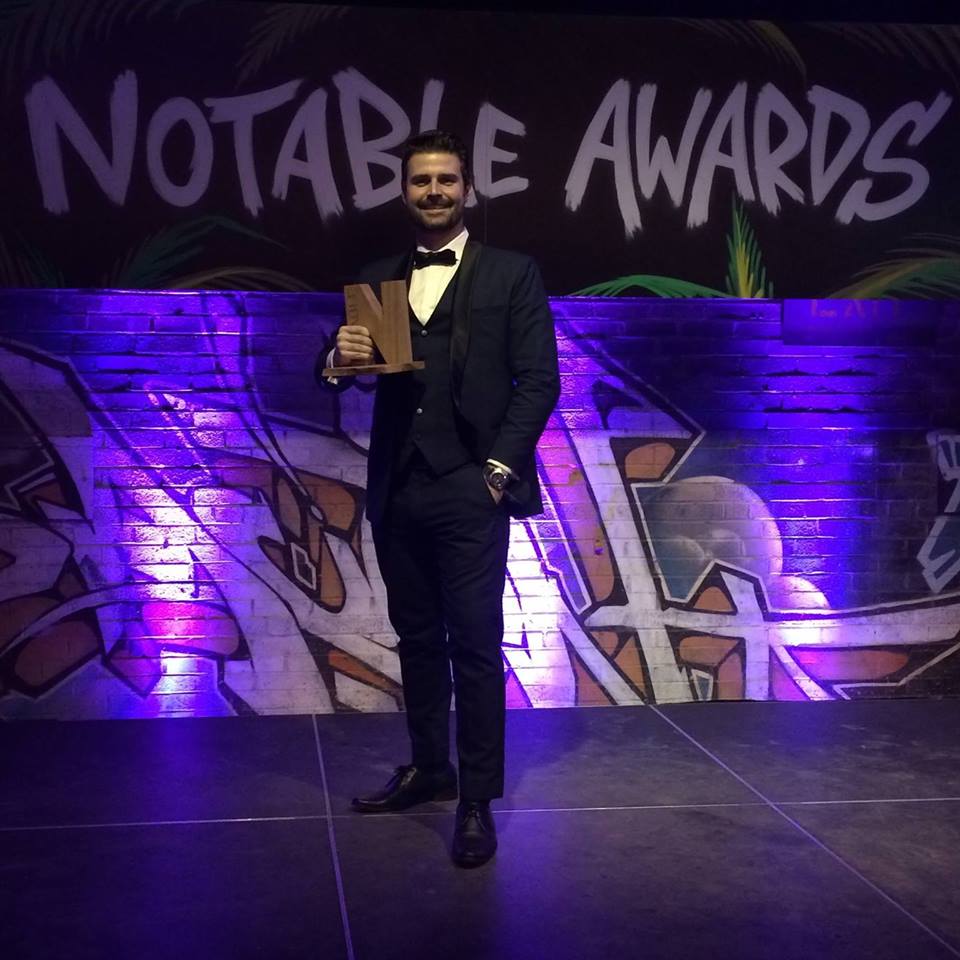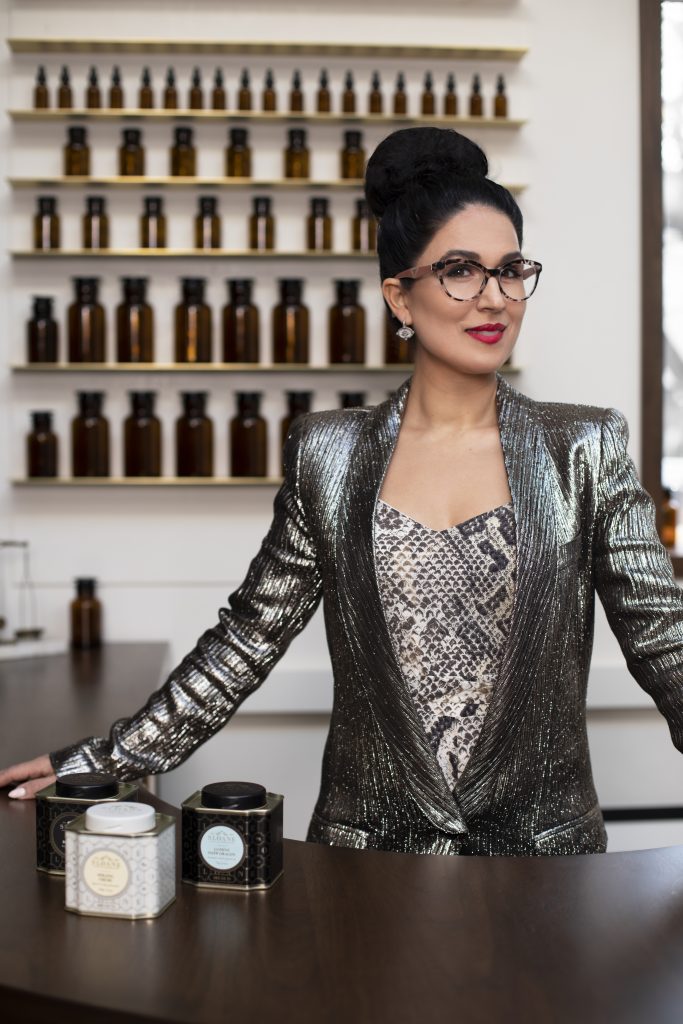Upgrading in a Downturn: Smart professionals are levelling up to get ahead during COVID-19
By Jessica Huras for George Brown College, Centre for Hospitality and Culinary Arts
From your now long-forgotten DIY projects to daily walks around our neighbourhoods, we’ve all been trying to remain productive and positive as we continue to adapt to life amid the pandemic. Many in the foodservice and hospitality community are taking advantage of the extended downtime and leveraging it as an opportunity to invest in further education. Some are pursuing long-time personal passions, while others are preparing for the next phase of their careers by gaining new skills and credentials.
While enrolling in a new program during the era of physical distancing may seem daunting at first, Jason Inniss, Professor/Coordinator, Culinary Management, Chef School at George Brown College, says that online learning and smaller class sizes can offer unexpected benefits for new students. “Since we were forced to go online, we invested a lot of time, energy, and money into recording all of our skills courses. It’s added a whole other layer to the learning for students,” he explains.
“In the past, a student had to be present in-person, and live for the opportunity to watch a live demo to see how something was done but now they have this resource that they can go back to and have for the rest of their life. If you’re trying to roll a baguette, for example, and you can’t remember exactly how to fold it or how to shape it, now you’ve got the video at your fingertips,” he says.
For classes that are continuing to be held in-person, group sizes have been reduced to promote physical distancing. “Rather than 24 students in the classroom, there’s only nine plus a professor so it’s way more hands-on now,” adds Inniss.
Tammy Vaillancourt, a Professor/Coordinator for Food & Beverage Management, School of Hospitality at George Brown, says that new virtual learning options are making it possible for more students to access the college’s programs than ever before. “There’s just so much more flexibility for our students than what they’ve ever seen in the past,” she says.
She points out that students who might previously have had to commute to campus or missed occasional lectures due to work or family commitments now have access to lecture content wherever and whenever it’s convenient for them to learn.
Vaillancourt says that many of her students are foodservice and hospitality professionals who are using the career pause created by the pandemic to work towards new ‘micro-credentials or pursue formal education for the first time after gaining years of hands-on experience.
Chris Palivan, the co-founder of the Toronto Cider Festival and a George Brown graduate, had worked hospitality jobs ranging from dishwashing to bartending before enrolling in the Special Events Planning program.

“I went to intro sessions for a few different programs. I hadn’t even considered special events as an avenue for me until somebody spoke about it and I realized that it completely made sense. It was everything that I wanted to pursue,” he says, adding that he saw the program as a jumping-off point for his goal of becoming an entrepreneur.
Innis says that post-graduate certificates can be an excellent option for those with a background in the industry who are ready to upgrade their skills. “For people who are in the industry who might be taking a hiatus right now, we have an advanced French culinary postgrad, an advanced Italian postgrad, an advanced nutrition postgrad [to name a few],” he says.
Stephanie Guth, another George Brown alumnus who now works as a portfolio manager for the Toronto-based wine agency the Living Vine, chose to return to George Brown to complete a postgraduate certificate in Italian Culinary Arts after finishing her two-year culinary management diploma.

Guth’s goal was to pave a career path in hospitality that offered opportunities to travel for work. Before the pandemic, Guth says she regularly took trips to Italy and France, where the Living Vine’s portfolio is concentrated, to attend wine shows, education programs, and other industry events. “I get to travel a ton, which is great,” she says. “Before COVID, I travelled maybe every six weeks to every two months.”
While the possibility of business travel may seem far removed from our current reality, investing in education now can lay the groundwork for future job opportunities abroad. “You can travel around the world with the skills taught through our programs,” says Innis, “and be hired in other places around the world because you have those fundamental culinary skills and understanding of how to cook multiple types of cuisines.”
The shift to remote learning is also giving current students the chance to master new virtual platforms and tools that could enhance their future job prospects. “The curriculum is shifting to reflect what skills will be needed post [COVID],” says Vaillancourt.
“I think there’s a new emerging market in virtual events,” she adds, noting that students who might have been required to host an in-person event as part of their program before the pandemic are now learning how to put on a virtual gathering instead. “I don’t think our students have ever learned this many technology platforms,” she says.
With foodservice and hospitality professionals across the country adapting their businesses to include new online elements, ranging from virtual cooking classes to more user-friendly e-commerce sites, tech-savviness is likely to be in-demand as the industry emerges from COVID.
Online sales and virtual events have been key components of Hoda Paripoush’s pandemic pivot. Owner of Sloane Tea and a graduate of George Brown’s tea sommelier program, Paripoush focused on developing tea programs for restaurants and hotels before the pandemic. Dining room closures and reduced hotel occupancies, however, have caused her to shift her strategy to online sales.

“Online has been there from the beginning, but it’s evolved dramatically in terms of the user experience and what we offer,” she says, explaining that Sloane has added subscription and rewards programs to entice new online customers.
Also, Paripoush’s tea cupping studio in Toronto, which was intended to become a hub for education, will soon be launching a video series to replace in-person events.
“Now we’re like, let’s take our cupping studio into people’s homes – take those intimate and candid conversations we wanted to have and make it available to everyone,” she says. Sloane’s video series will include interviews with industry changemakers as well as “how-to’s” designed to help customers learn techniques for preparing tea at home.
Innis points out that the pandemic has spurred new foodservice and hospitality trends, such as the emergence of virtual kitchens, which present exciting opportunities for those with an entrepreneurial mindset. “We believe that when the pandemic calms down and businesses bounce back, it’s going to come back harder and stronger,” he says.
“You don’t just get cooking skills out of a culinary certificate or diploma. You also get leadership and organizational and management skills. It’s such an amazing transferable skill, not only for a career path but also for life.”









